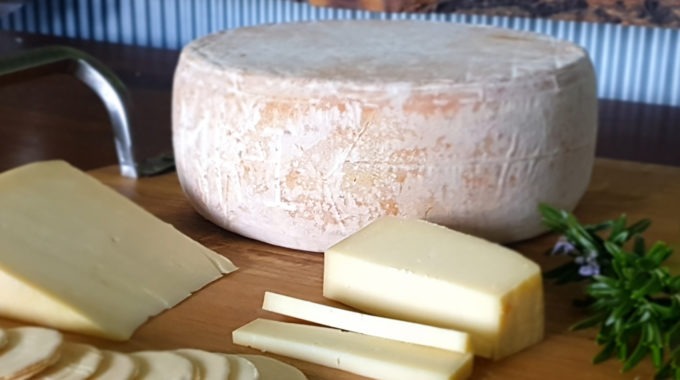Pecora Dairy & Prom Country: raw magic
In all of Australia, only two cheesemakers are currently permitted to make “real” raw milk cheese from uncooked curd: Pecora Dairy in NSW and Prom Country Cheese in Victoria. Unlike cooked curd raw milk cheese, which was first approved by Food Standards Australia New Zealand in 2012, the making of uncooked curd raw milk cheese was banned in Australia until about six years ago. But thanks to the determination of the Australian Specialist Cheesemakers’ Association, artisan producers and cheese specialists like Will Studd, the law was finally changed to allow for its production. However, as our cheesemakers were soon to learn, getting this ban lifted was only one of many hurdles they had to overcome.
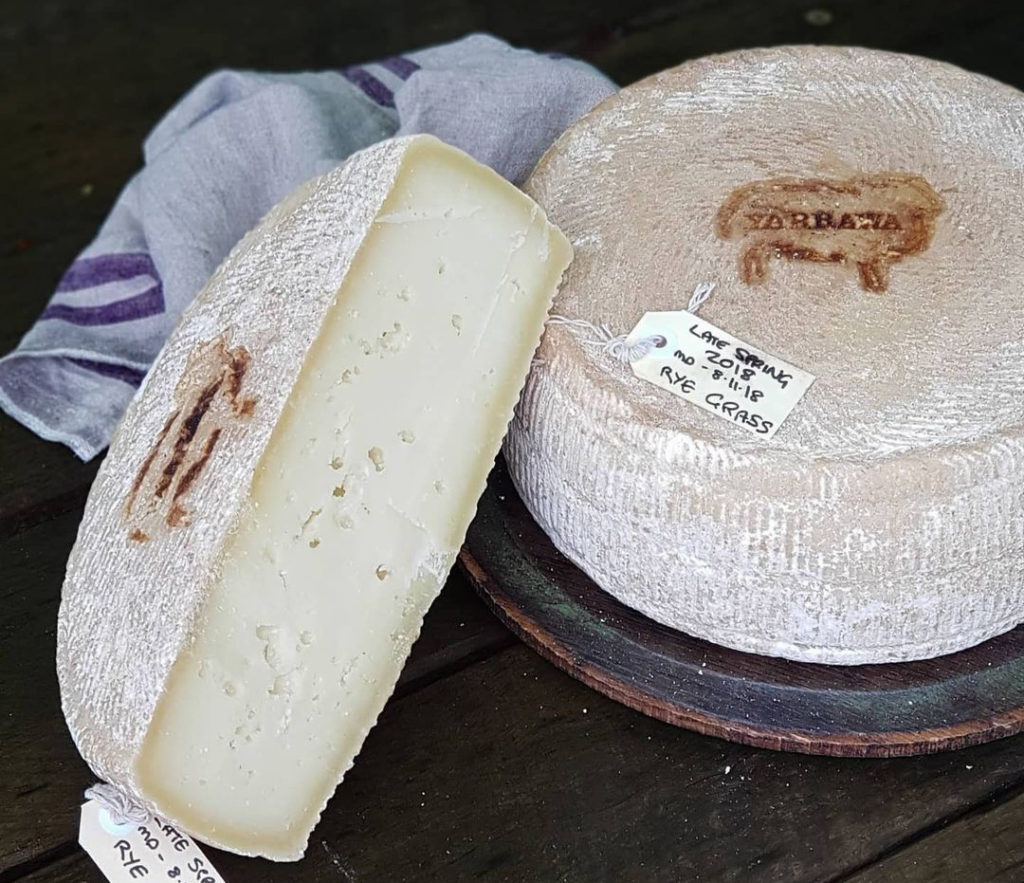
Is raw milk cheese safe?
If you’ve ever eaten salami, it’s unlikely that you were thinking, “Hey, I’m eating raw pork”. Essentially you are. But it’s been air-dried and fermented, which kills off any potentially dangerous pathogens. In this way, raw milk cheese is very similar.
“Raw milk may have bugs in it, like E. coli or salmonella,” says Pecora Dairy’s Michael Cains, who produces two uncooked curd cheeses made from raw sheep’s milk – the award-winning Yarrawa and a feta-style cheese. “This is why the sale of raw milk is illegal.
“But when you make raw milk cheese, you allow these bugs to grow. The good ones. Perhaps some bad ones. You might add some of your own cultures, too. Then we make sure the cheese has all the right physicochemical properties. This means that it’s got enough salt. It’s got enough acid. It’s firm enough – it’s got an absence of too much water. “
Once you’ve got these properties right, it’s merely a matter of time before all the existing bacteria in the cheese simply die off. Once you put the cheese in the maturation room, because that cheese is acidic and salty and hard, bacteria is unable to survive.
“It can’t grow,” Cains says. “It’s an inhospitable environment to it. That’s the process of salami and raw milk cheese. That process of maturing a cheese, so it’s a safe, healthy food.”
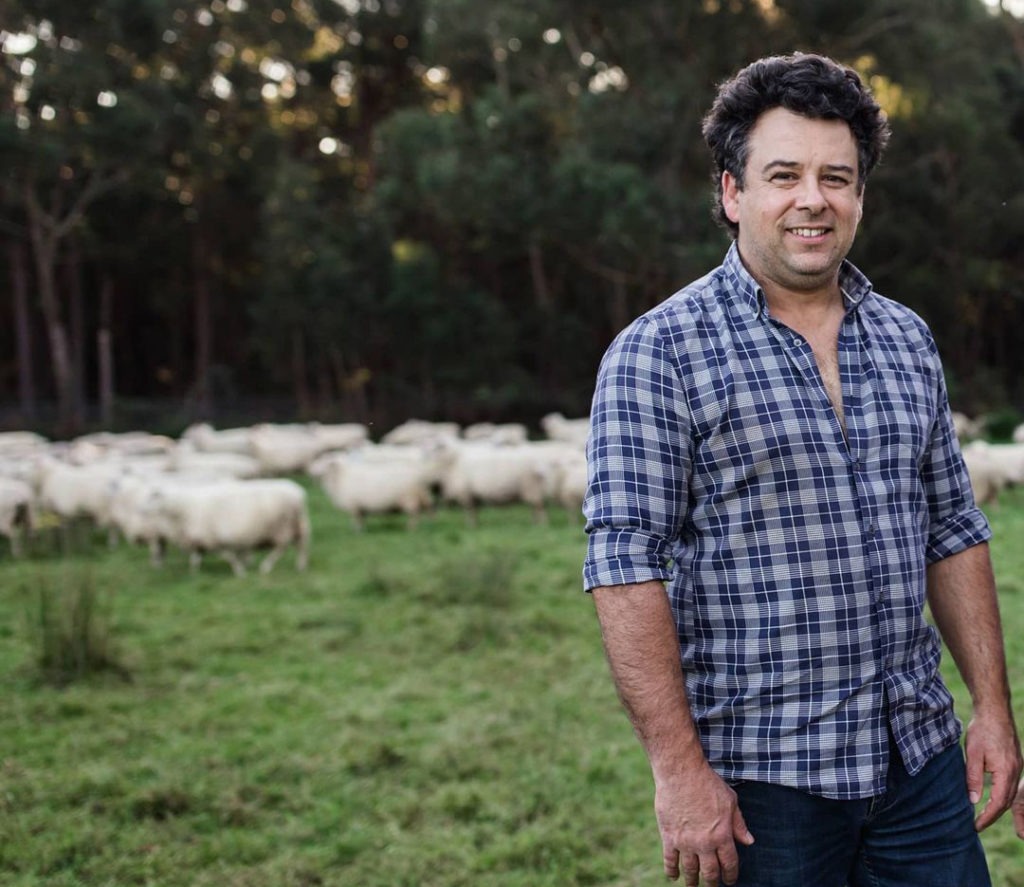
Micro management
Letting bacteria grow in the initial stages of production allows for the development of truly unique flavours, textures and even colours that simply can’t be replicated by a pasteurised milk cheese. This is what makes raw milk cheese so special… and so delicious.
“Cheese is probably the only food that has the capacity to express the entire farming system,” says Cains, as sheep baa-aaah happily in the background. “If you look at the whole farming system, you look at all the variables in it: what the animals are eating, what the seasons are, where the animal is in its lactation. You get those big macro factors.”
You’ve heard about wine having “terroir”, which essentially means “a sense of place”. So when you taste a Coonawarra Cab Sav or a Hunter Valley Semillon, you know it’s going to taste a certain way, because it’s reflecting those macro factors; the soil and the seasons.
“Raw milk cheese takes it one step further,” Cains says. “You also get the micro factors that represent the microbiological aspects of the farm. We’ve got a unique microculture here.”
So when you eat a raw milk cheese from Pecora, you know you’re eating something that can’t be replicated. It can’t be replicated on that farm, let alone anywhere else.
“Because embedded in the flavour of that cheese is everything that’s happening right then,” Cains says. “What are the sheep eating? Where in their lactation are they? [Sheep only milk for part of the year]. What season is it? What’s the weather like? And all this means that the cheese is going to be different from one batch to the next.”
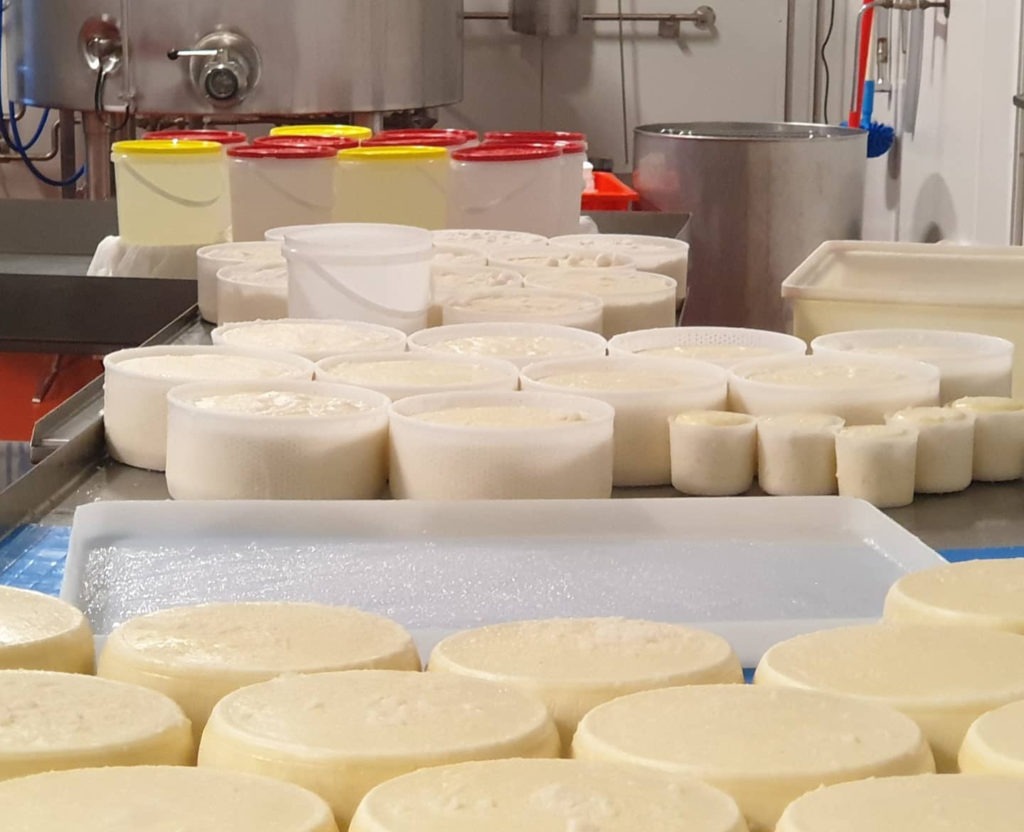
A labour of love
It takes a lot of time, hard work and money to produce true raw milk cheese. While regulations differ slightly between states, producers must pay to send both milk and cheese for regular testing. And this is only once you’ve been given the nod by food authorities.
“It was quite a process just to get over that first hurdle,” says Prom Country’s Burke Brandon, who makes Victoria’s only uncooked curd raw sheep milk cheese, Moyarra Reserve (pictured at top). “The time involved in getting our food safety plan approved; we pretty much spent 12 months just getting the paperwork right. We’re talking a 200-page document. Ultimately, it was a two-year process to get approval.”
Pecora Dairy and Prom Country also produce a range of pasteurised sheep milk cheeses, and Brandon says the processes involved in raw milk cheesemaking differ hugely.
“It’s a physically exhausting time of year,” he admits. “Which is why we only make raw milk cheese through late spring and early summer. Particularly being farmhouse cheesemakers – we’re milking the animals first before we make cheese each day.”
More work is required in the dairy. All the udders of the animals must be cleaned and sanitised extremely thoroughly. The dairy itself must also be cleaned and sanitised, and the cheesemaking facilities must undergo a “deep clean” between the production of raw milk cheese and pasteurised cheese. Then there’s the actual cheesemaking.
“The milk we use for raw milk cheese is less than 24 hours old, so we have to make it in small batches every day,” Brandon says. “With pasteurised milk, we can save it up for a few days and be more efficient by making a bigger batch.”
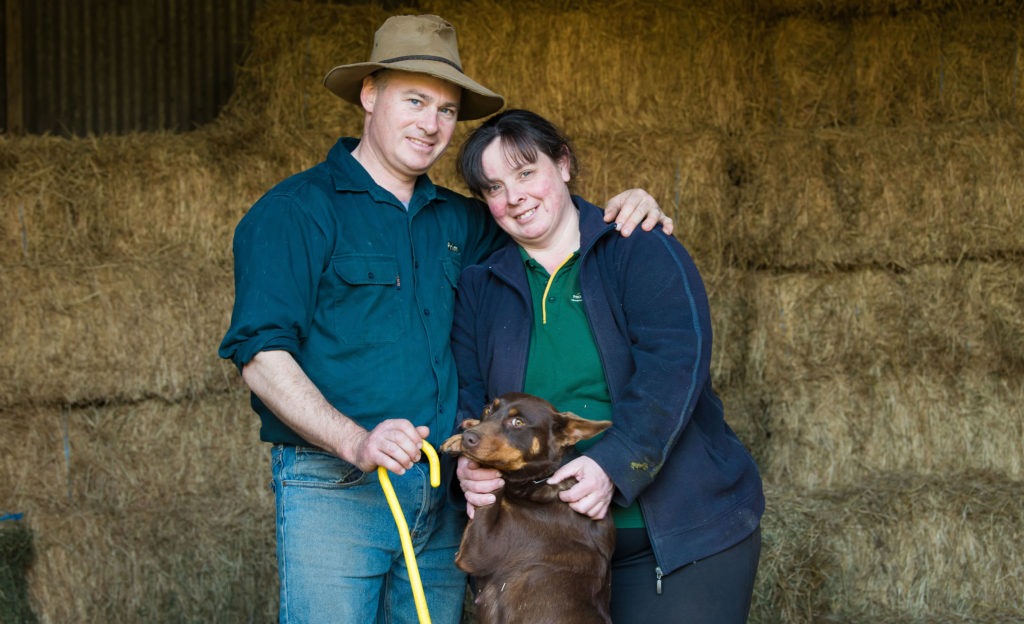
Cheese pioneers
With all this extra work and expense and cleaning and paperwork, it begs the question: why do cheesemakers still choose to make raw milk cheese?
“It was something we felt we had to do; that we should do it because we can,” Brandon says. “We’re in a good position, given that we’ve got our own milk, so we’re in control of our milk quality, which is really important for raw milk cheesemaking. We thought we’d trial it with one cheese and see how it goes. And the response has been pretty amazing.”
For Cains, he says he hopes that Pecora Dairy and Prom Country have paved the way for more artisan cheesemakers to start exploring raw milk cheesemaking.
“I know lots of cheesemakers that really, really want to do it,” he says. “They acknowledge that it takes a lot of time and effort and paperwork, and you’ve got to take that deep breath and jump into the cold water. But it will happen.”
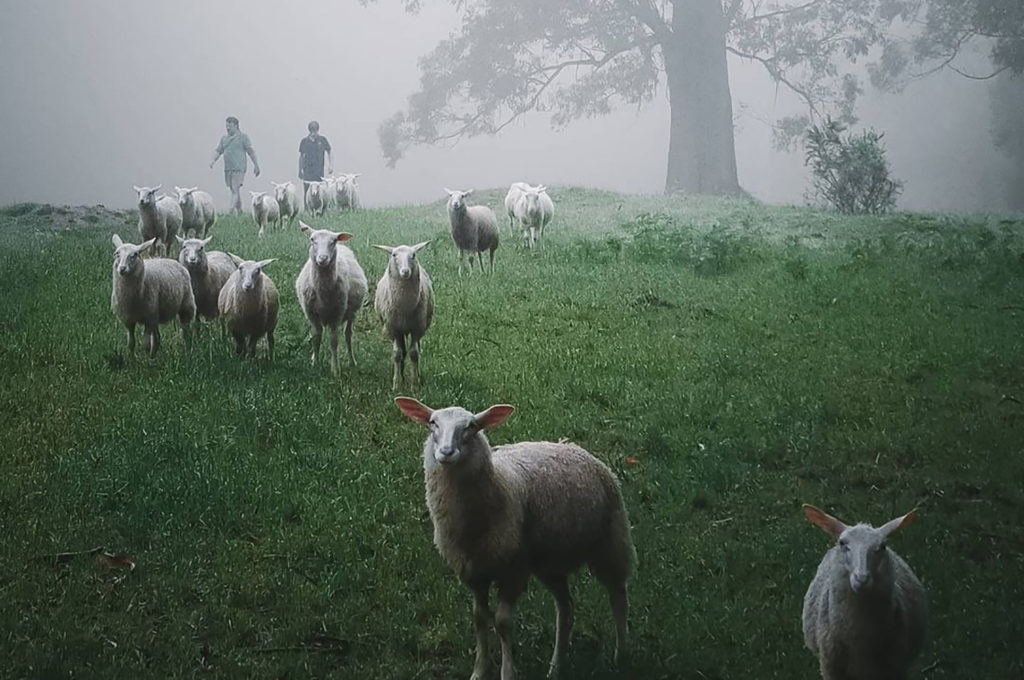
A shift is in the air
That big first leap that Pecora Dairy and Prom Country have made indicates an important structural shift in Australia’s artisan cheesemaking industry. Cains points to similar shifts in our wine and beer industries, which have seen huge growth in recent years. Once upon a time, we used to drink French wine and VB. Now, regional Australia is filled with vineyards and microbreweries, benefitting both regional communities and the wider economy.
“With those two examples in front of us, when you think of what could happen with an artisan cheese industry? It makes me excited to think of the possibilities,” Cains says. “Hopefully, after more people decide to go down this path, we can get to a point where we can show what all the science already tells us – that a raw milk cheese that’s matured in this way is just as safe as a cheese that’s pasteurised. Even safer. Because we know that it’s been made to that standard where it’s unconducive to pathogen growth.
“Australia has a great story to tell. Most of the world has to shed their animals for half the year. In Australia, we’re grazing our animals on grass all year. It’s beautiful, clean, pure milk. And raw milk cheese is the ultimate way of expressing your farm on a plate.”
To find out more about Pecora Dairy, head to pecoradairy.com.au. To find out more about Prom Country Cheese, head to promcountrycheese.com.au


